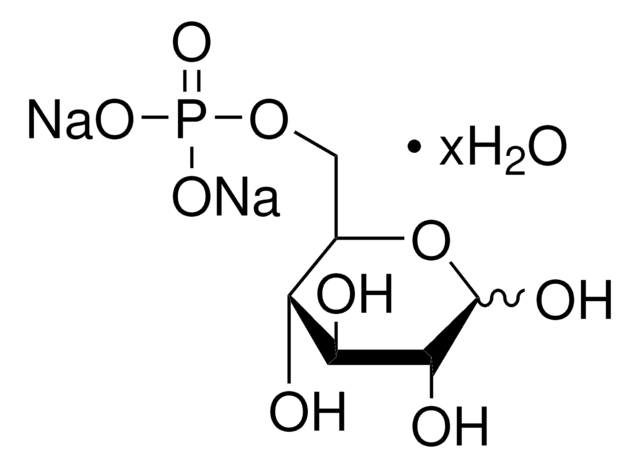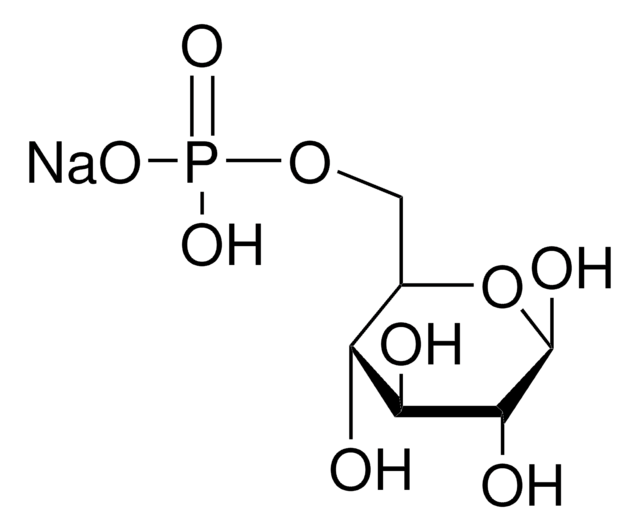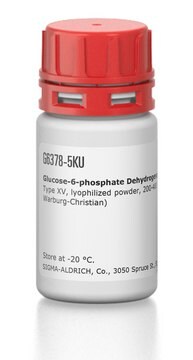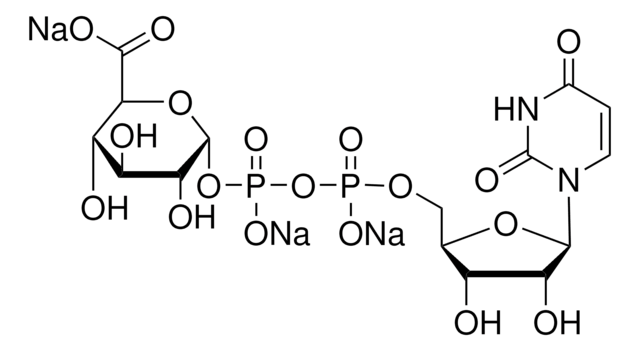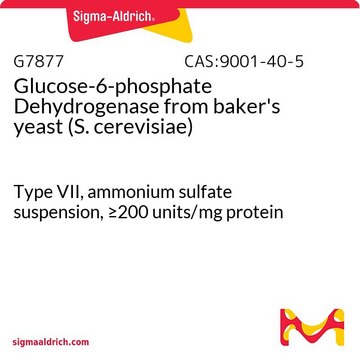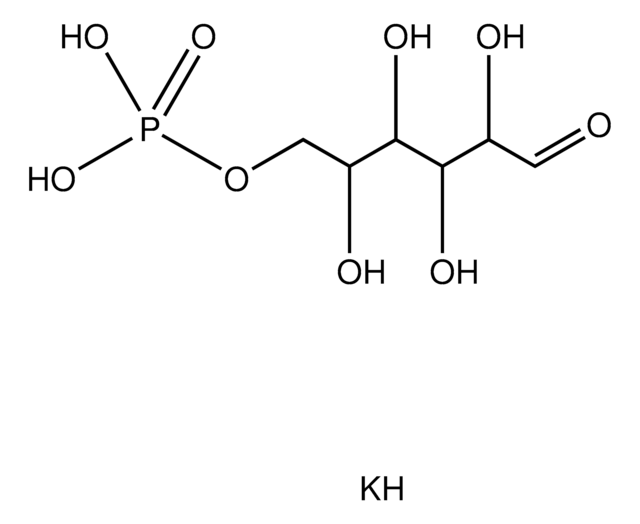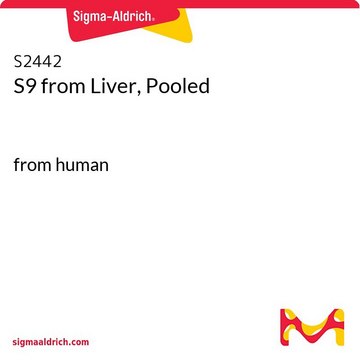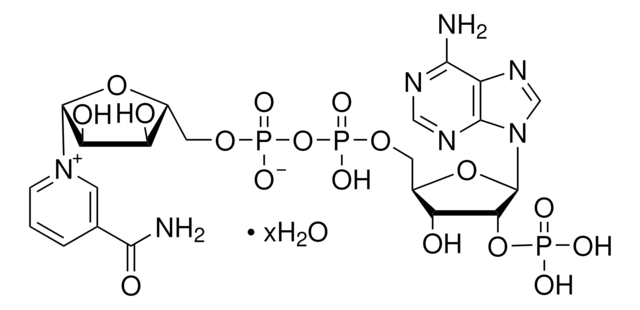G7772
D-Glucose 6-phosphate solution
~1 M in H2O (approx. 260 mg per ml)
Synonym(s):
D(+)-Glucopyranose 6-phosphate, Robison ester
About This Item
Recommended Products
biological source
synthetic (inorganic)
Assay
≥99% (TLC)
form
liquid
concentration
~1 M in H2O (approx. 260 mg per ml)
technique(s)
thin layer chromatography (TLC): suitable
color
colorless
shipped in
dry ice
storage temp.
−20°C
SMILES string
OC(COP(O)(O)=O)C(O)C(O)C(O)C=O
InChI
1S/C6H13O9P/c7-1-3(8)5(10)6(11)4(9)2-15-16(12,13)14/h1,3-6,8-11H,2H2,(H2,12,13,14)
InChI key
VFRROHXSMXFLSN-UHFFFAOYSA-N
Looking for similar products? Visit Product Comparison Guide
Application
- Phosphonate and α-fluorophosphonate analogs of d-glucose 6-phosphate as active-site probes of 1l-myo-inositol 1-phosphate synthase.: This study explores phosphonate and α-fluorophosphonate analogs of d-glucose 6-phosphate, offering insights into their use as probes for understanding enzyme mechanisms, which could impact biochemical research methodologies (Ramos-Figueroa et al., 2023).
Biochem/physiol Actions
Linkage
Other Notes
Signal Word
Danger
Hazard Statements
Precautionary Statements
Hazard Classifications
Skin Corr. 1B
Storage Class Code
8A - Combustible corrosive hazardous materials
WGK
WGK 3
Flash Point(F)
Not applicable
Flash Point(C)
Not applicable
Personal Protective Equipment
Certificates of Analysis (COA)
Search for Certificates of Analysis (COA) by entering the products Lot/Batch Number. Lot and Batch Numbers can be found on a product’s label following the words ‘Lot’ or ‘Batch’.
Already Own This Product?
Find documentation for the products that you have recently purchased in the Document Library.
Customers Also Viewed
Our team of scientists has experience in all areas of research including Life Science, Material Science, Chemical Synthesis, Chromatography, Analytical and many others.
Contact Technical Service